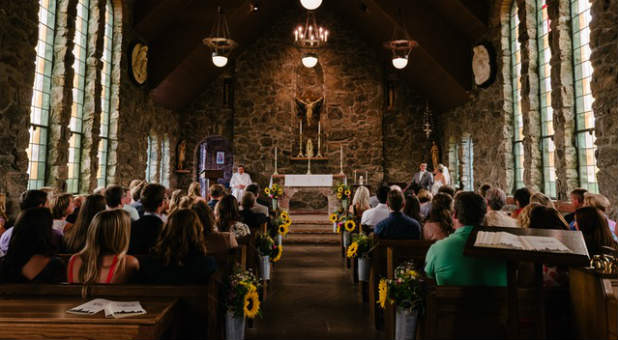
Last weekend, Deborah and I were in Auckland, New Zealand, for our Every Nation Oceania conference. This week, we are in Sydney for our annual Asia and Oceania Regional Leadership Team meeting.
Traveling around the Every Nation world, I have the privilege to participate in Sunday worship services in many different cultures and languages. I have worshiped with our brothers and sisters in Chinese house churches; I have worshiped in a converted cockfighting pit in Colombia; I have worshiped at medieval cathedrals in Europe; I have worshiped in contemporary megachurches in the Philippines. Not long ago, I worshipped in a small Pentecostal church in rural Georgia. The cultural contexts of these worship services vary wildly—and this affects things like worship language, worship style, worship environment, meeting size, and service flow.
However, whether we are in Shanghai or Fusagasuga, Oxford or Nashville, certain core elements of Christian liturgy transcend cultural variation. Through singing, preaching, communion, giving and fellowship, churches around the world and across the centuries have been participating in the same liturgical practices that emerged in the earliest days of the New Testament church in Syria-Palestine.
Why or how have these elements of Christian worship persisted across time and space for over 2,000 years?
First, we find these liturgical elements practiced in the Bible (especially in Acts). Second, Christian leaders recognize that worship is not ultimately about expression; it's about formation.
If unique cultural expression was the primary goal in worship, then it wouldn't matter if churches in twenty-first century Lagos continued with ancient liturgical practices developed in first-century Jerusalem. They could find their own ways to express their love for God, which may or may not include singing, preaching and communion. But for some reason we continue to worship in the same ways Christians throughout the ages have done.
Why?
As beautiful as it is hear God's praises sung in hushed Chinese in a house church and as powerful as it is to hear the word of God preached by our young Colombian leaders in a cockfighting pit (formerly owned by Pablo Escobar), diverse cultural expression is a secondary goal in worship. The primary goal is spiritual formation, or discipleship.
In other words, the most important actor in worship is not us (as humans) but God.
While we often think Sunday worship is primarily about expression (what we do to/for God), it is actually more about formation (what God does to/in us). Why? Because when we gather together as a church to worship God, He comes by His Spirit in our midst and changes us. He doesn't just transform us in a nebulous way, but rather, he comes and transforms us through the repeated "rituals" of Christian worship. Singing, fellowship, preaching, communion, giving—these powerful liturgical practices are God's way of revealing Himself to us and transforming us by His Spirit.
In communion, God engages our eyes, our hands, our mouths and our stomachs, and reminds us in very tangible ways of his incarnation, crucifixion and resurrection.
In preaching, God engages our ears and our minds—and through His spirit, He convicts us of sin and calls us to repentance and faith.
In singing, God engages our vocal chords and our emotions—and trains us to love Him with our whole heart, soul, min and strength.
In giving, God engages our material possessions, the bills and cards and accounts in your back pocket—and trains us to trust Him and His provision and to denounce the idol of mammon.
In fellowship, God engages our social lives—and reminds us that our primary group identity is not our nation or our ethno-linguistic group or even our natural family. But rather, it is the people redeemed by Christ's blood from every tribe, language, people and nation.
This is how worship works. And whether we realize it or not, this is what God is up to on Sunday morning. ![]()
Steve Murrell serves as the president of Every Nation Churches and Ministries, a ministry that does church planting and campus ministry in over 70 nations.
This article originally appeared at stevemurrell.com.
Get Spirit-filled content delivered right to your inbox! Click here to subscribe to our newsletter.
Dr. Mark Rutland's
National Institute of Christian Leadership (NICL)
The NICL is one of the top leadership training programs in the U.S. taught by Dr. Mark Rutland. If you're the type of leader that likes to have total control over every aspect of your ministry and your future success, the NICL is right for you!
FREE NICL MINI-COURSE - Enroll for 3-hours of training from Dr. Rutland's full leadership course. Experience the NICL and decide if this training is right for you and your team.
Do you feel stuck? Do you feel like you’re not growing? Do you need help from an expert in leadership? There is no other leadership training like the NICL. Gain the leadership skills and confidence you need to lead your church, business or ministry. Get ready to accomplish all of your God-given dreams. CLICK HERE for NICL training dates and details.The NICL Online is an option for any leader with time or schedule constraints. It's also for leaders who want to expedite their training to receive advanced standing for Master Level credit hours. Work through Dr. Rutland's full training from the comfort of your home or ministry at your pace. Learn more about NICL Online. Learn more about NICL Online.


